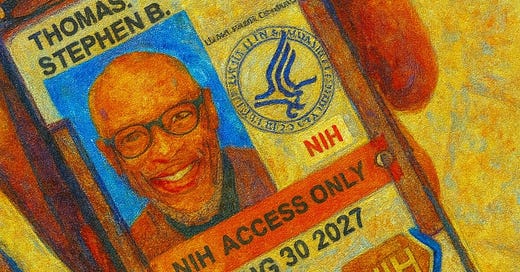Reflections from lived experience on Termination from my NIH deployment:
To the Editor:
As a public health professor embedded at the Institute on Drug Abuse, part of the National Institutes of Health, I witnessed firsthand how Black barbers and stylists can advance addiction research and save lives.
Our community-based intervention, Health Advocates In-Reach and Research (HAIR), partnered with barbers to collect hair samples measuring fentanyl exposure and stress biomarkers without needles or stigma. Nearly one-third of participants tested positive for fentanyl, most of them under 35. This work revealed hidden risk patterns, offered hope for early intervention and built trust in communities often excluded from research.
Then, midstream, my federal appointment was abruptly terminated “for the convenience of the government.” The decision dismantled a pipeline connecting community-based research with federal science. Graduate students lost critical projects tied to their degrees. Barbers and stylists, who had opened their shops to N.I.H. scientists, were left without answers.
Ending research on health disparities is not just a bureaucratic adjustment. It abandons communities at highest risk of overdose deaths. Trust, once broken, is hard to braid back together.
Stephen B. Thomas College Park, Md. The writer is a professor of health policy and management and the director of the Maryland Center for Health Equity.
Published today online at NTY






Thank you for speaking truth to power, and telling stories that humanize harm.
First-hand accounts are great data.